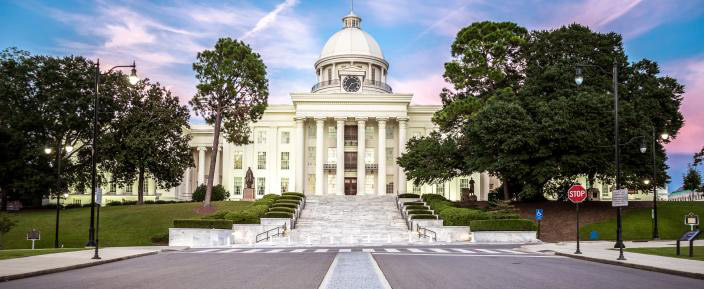A bill currently working its way through the Alabama Legislature would make it a felony for any clergyperson, church volunteer or staff member to have a sexual relationship with church attendees under age 19 and protected persons under age 22.
This new provision contained in Alabama House Bill 125 would apply to “a minister, priest, rabbi, bishop or other recognized member of the clergy in a position of trust or authority over a person.”
The bill would prohibit acts of “sexual intercourse or sodomy.” The bill also would make a felony out of acts of enticement, harassment, nudity and sexting.
The bill states that “consent is not a defense to a charge under this section.”
Abuse reform advocates have long pushed for legislatures to adopt similar laws. Many have argued that because of the inherent power differentials and dynamics of spiritual control at play in clergy-parishioner relationships, clergypersons should not be legally allowed to have relationships with those under their care.

Rep. Leigh Hulsey
The bill was sponsored by Rep. Leigh Hulsey, a Republican from Helena, Ala.
In an interview with AL.com, Hulsey said the bill was modeled on legislation already on the books prohibiting teachers from having sexual relationships with students: “It’s almost identical to that bill.”
She added: “In the state of Alabama, consent for sexual activity is 16 years of age. Our law explicitly waives that as a defense for teachers, but it does not anywhere else, such as where people are underneath the trust or authority of someone like you would find yourself in a church Sunday school class.”
The bill is currently pending House committee action.
One abuse case out of Alabama said to influence the new law is that of a female survivor identified as “Ivy.”
A friend of Ivy, who asked not to be named because of the risk of exposing the abuse victim, reached out to BNG to tell her story.
Ivy allegedly was abused by her youth pastor, who also was her legal guardian. Ivy was said to have been groomed from the age of 12 to 15. She began to be sexually abused at age 16, which happens to be the state’s age of consent.
“There is nothing protecting kids because they can abuse for years and groom for years, then they know once they hit 16 there is nothing holding them accountable,” Ivy told a news outlet. “Once they have you groomed and convinced, then they’re good and my abuser knew that.”
Ivy’s advocate expressed anger that some clergy in the state seemingly have gotten away with sexual abuse because of Alabama’s age of consent law: “Sexual predators should not be allowed to hide behind the walls of our churches knowing that they will not be held accountable for their crimes. As Christians, it is so important that we make our voices heard to protect the children of our state! As followers of Christ, we cannot turn a blind eye to those who are being abused, especially when the abuse is happening within our state’s churches.”
The advocate said Ivy has faced significant resistance in reporting and seeking justice for her abuse, especially in the Southern Baptist church where her abuse was said to have happened.
Rep. Hulsey told AL.com she worked with leadership of the Alabama Baptist State Convention and other groups to receive input on the bill.
Abuse reform advocate and retired appellate attorney Christa Brown praised the bill as a small but important step for churches to begin taking meaningful action on protecting children, teens and others vulnerable to sexual abuse: “This bill would be a small step in the right direction for Alabama, a state dominated by Southern Baptists who have a terrible track record for failing to protect kids. Clergy who sexually abuse teens should face criminal prosecution just as school teachers would.”

